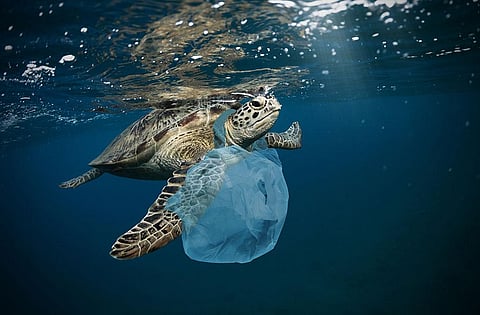

Sea turtles are probably the dumbest and most gullible creatures of the sea. Why? Well, that’s because they are likely to confuse plastic floating in the ocean for food and eat it, according to a Science News report. However, in the poor creature’s defense, they are not the only ones being fooled into eating plastic trash. Many sea birds and fish get confused and eat plastic. The source of all the confusion is the smell that ocean plastic emits. Dimethyl sulfide, a chemical gas that the ocean plastic releases is also produced by phytoplankton, a key food source for many marine animals.
Once a turtle swallows plastic they are unable to throw it back up. As a result, most of the ingested plastic gets stuck in the turtle’s gut and limits its ability to absorb and digest food. Research shows that ingesting just over a dozen pieces of plastic can kill turtles. Young turtles are particularly vulnerable because they tend to swim in currents where loads of plastic accumulate.
Now, more than 8 million tonnes of plastic are dumped into the oceans every year. But how does plastic get into the ocean? A lot of it comes from the world's rivers, which serve as direct conduits of trash from the world's cities to the marine environment. The Brahmaputra and Ganga rivers of India and the Megnna river flowing through Bangladesh empty over 70,000 tonnes of plastic into the oceans, according to United Nations Environment Programme (UNEP). These three water bodies along with seven other rivers in Asia and Africa account for 90% of the plastic waste entering oceans, adds the UNEP.
And who is responsible for the plastic in our rivers, lakes and creeks? It’s us, humans. We produce about 300 million tonnes of plastic waste every year. That’s equivalent to the weight of the entire human population! Well if current trends continue, our oceans could contain more plastic than fish by 2050.